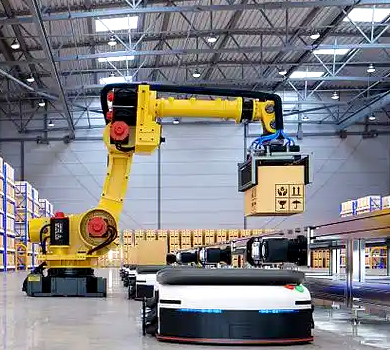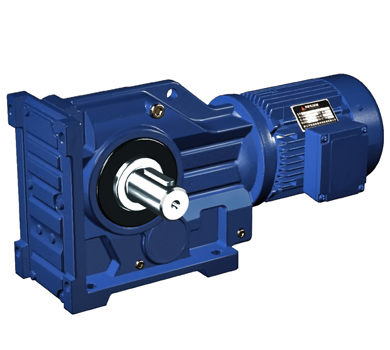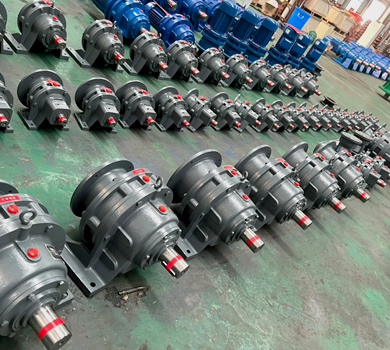С увеличением глобального спроса на продукты переработки, автоматизированная система нарезки, мойки и сортировки овощей стала неотъемлемой частью современного пищевого производства. Такие системы обычно включают в себя машины для нарезки, конвейеры, мойки под высоким давлением, оптические сортировочные системы и автоматическую упаковочную линию. Тенденции роста пропускной способности, усиления санитарных требований и минимизации занимаемого объема вынуждают инженеров разрабатывать передовые и надежные трансмиссионные решения, способные работать в агрессивных условиях.
Вызовы и проблемные точки отрасли:
- Стресс окружающей среды: Постоянное воздействие влаги, чистящих средств и переменных температур значительно сокращает срок службы механических компонентов, включая редукторы.
- Стабильность системы: Несоосность или вибрации, вызванные неточными или плохо обслуживаемыми трансмиссионными компонентами, приводят к частым простоям и снижению производительности.
- Энергоэффективность: Высокое энергопотребление двигателей является ключевым фактором затрат, особенно в крупных производственных линиях, где редукторы широко используются.
- Ограничения по пространству: Современные линии переработки придают приоритет компактным и модульным конструкциям. Традиционные редукторы часто не подходят для ограниченных пространств.
- Частота обслуживания: В пищевом производстве обслуживание должно быть как регулярным, так и минимальным, чтобы избежать риска загрязнения и обеспечить соблюдение санитарных стандартов.
Критическая роль и технические требования к редукторам:
В этой сфере редукторы используются для точного контроля скорости и крутящего момента нарезающих головок, конвейерных лент и приводов сортировки. Основные технические требования:
- Высокая плотность крутящего момента: Для поддержки тяжелых операций нарезки и мойки.
- Точная передача: Для обеспечения стабильной и воспроизводимой работы, особенно при высокой скорости.
- Быстрый отклик: Для динамической регулировки скорости и синхронизации с другими компонентами системы.
- Совместимость: С распространенными размерами двигателей, энкодерами и системами управления для бесшовной интеграции.
- Адаптивность к условиям: Сопротивление воздействию влаги, высокой температуры и коррозионных чистящих средств – необходимость.
- Долгий срок службы и низкое обслуживание: Для минимизации простоев и эксплуатационных затрат.
Решение Waimica на основе конических редукторов:
Конический редуктор Waimica разработан специально для решения сложных задач автоматизированной пищевой промышленности. Наше решение оптимизировано для надежности, компактности и точности. Ниже приведены ключевые особенности, которые решают основные проблемы:
- Компактная структура и модульная конструкция: Адаптированы к ограниченным пространствам, с интегрированными вариантами крепления и легкими материалами для удобной установки и гибкой конфигурации.
- Высокий крутящий момент и точность: Высокий крутящий момент до 2500 Нм и низкий люфт ≤ 1 угловой минуты, обеспечивают стабильную и воспроизводимую работу в процессах нарезки и сортировки.
- Высокая эффективность и энергосбережение: Эффективность свыше 95% при обычных нагрузках, значительно снижающая эксплуатационные расходы и тепловое воздействие на двигатели.
- Степень защиты IP67 и соответствие пищевым стандартам: Идеально подходят для мойки, с корпусами из нержавеющей стали и безопасной смазкой, соответствующей стандартам HACCP и FDA.
- Гибкие варианты крепления и входных фланцев: Поддержка ISO 9445 и IEC, с различными типами фланцев для простой интеграции с ведущими брендами двигателей.
| Параметр | Waimica | Бренд A | Бренд B |
|---|---|---|---|
| Максимальный крутящий момент | 2500 Нм | 2200 Нм | 2300 Нм |
| Люфт | ≤ 1 угл. мин. | ≤ 2 угл. мин. | ≤ 2 угл. мин. |
| Эффективность (при номинальной нагрузке) | 95%+ | 93% | 94% |
| Степень защиты (IP) | IP67 | IP65 | IP65 |
| Диапазон рабочих температур | -20°C до +80°C | -10°C до +70°C | -15°C до +75°C |
| Срок службы (L10) | 20 000 часов | 15 000 часов | 18 000 часов |
| Интервал обслуживания | 12 000 часов | 8 000 часов | 10 000 часов |
| Варианты крепления | Множество (фланец, опорная плита, полый вал) | Ограниченные (только фланец) | Ограниченные (только опорная плита) |
Типовое применение и отзывы клиентов:
Большая компания по переработке продуктов питания в Юго-Восточной Азии запросила обновление системы нарезки и сортировки для линии массового производства. Существующая система использовала редуктор конкурента, который часто выходил из строя из-за проникновения влаги и недостаточной поддержки крутящего момента для высокоскоростных операций. Инженерная команда Waimica провела анализ на месте и предложила ряд конических редукторов C-4000 в качестве прямой замены.
- Выявленные потребности: Высокий крутящий момент, компактный дизайн и высокая степень защиты для систем мойки.
- Подход Waimica: Проведение маппинга системы, расчет крутящего момента и скорости, моделирование нагрузочных сценариев для обеспечения совместимости и производительности. Настройка входного фланца и вариантов крепления под существующий двигатель и компоновку.
- Результаты после внедрения:
| Показатель | До Waimica | После Waimica | Улучшение | |
|---|---|---|---|---|
| Простой системы (ежемесячно) | The3.2 ч | 0.8 ч | 75% ↓ | |
| Потребление энергии (на 1000 шт.) | 18.5 кВтч | 15.2 кВтч | 18% ↓ | |
| Среднее время между отказами (MTBF) | 8 000 часов | 16 000 часов | 100% ↑ | |
| Частота обслуживания (на 10 000 часов) | The4 раза | 1 раз | 75% ↓ |
Клиент сообщил, что в первые 6 месяцев после внедрения была достигнута улучшенная на 90% надежность системы и увеличение общей производительности на 20%.
Заключение и обобщение ценности бренда Waimica:
Решение Waimica на основе конических редукторов предлагает высокотехнологичное, надежное и экономичное решение передачи движения, разработанное специально для пищевой промышленности. Сочетание точной инженерии, модульного дизайна и высокой стойкости к окружающей среде делает наши продукты достойной альтернативой импортным решениям при этом предлагая превосходное соотношение цены и качества, гибкость в настройке и поддержку сервиса.
Waimica осознаёт текущие и будущие требования глобальных производителей пищевых продуктов и готов к поддержке их автоматизации и цифровизации. Мы не просто отвечаем на современные запросы, но и позиционируем себя как надежного партнера на долгосрочной перспективе для следующего поколения автоматизированных производственных систем в пищевой промышленности.







